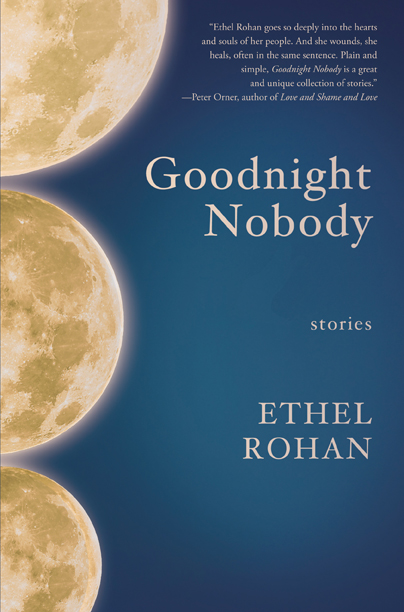Today is the official publication date for Goodnight Nobody. I am deeply grateful to my wonderful publisher, Erin McKnight at Queen’s Ferry Press. Erin has proved a dream to work with and I couldn’t have asked for a better publication experience.
I remain deeply grateful also to Siobhan Fallon, Roxane Gay, Peter Orner, and Chad Simpson for their generous blurbs and spirits.
My thanks to Myfanwy Collins, Mary Miller, and Mya Spalter for reading the manuscript and providing excellent feedback.
Steven Seighman delivered a stunning book cover, with fancy French flaps, that I’m thrilled with.
From my heart, my thanks to the readers who have and will read Goodnight Nobody. I feel supported by so many and that’s a true blessing and source of joy.
It’s been a tough few months. I lost my mother, father, and father-in-law over a three month period. My deep thanks go to my parents-in-law for being such great grandparents and raising a great son, my husband. My deepest thanks go to my parents for doing your best, for bringing me here.
“I’ve learned that no matter what happens, or how bad it seems today, life does go on, and it will be better tomorrow. I’ve learned that you can tell a lot about a person by the way he/she handles these three things: a rainy day, lost luggage, and tangled Christmas tree lights. I’ve learned that regardless of your relationship with your parents, you’ll miss them when they’re gone from your life. I’ve learned that making a “living” is not the same thing as making a “life.” I’ve learned that life sometimes gives you a second chance. I’ve learned that you shouldn’t go through life with a catcher’s mitt on both hands; you need to be able to throw something back. I’ve learned that whenever I decide something with an open heart, I usually make the right decision. I’ve learned that even when I have pains, I don’t have to be one. I’ve learned that every day you should reach out and touch someone. People love a warm hug, or just a friendly pat on the back. I’ve learned that I still have a lot to learn. I’ve learned that people will forget what you said, people will forget what you did, but people will never forget how you made them feel.”― Maya Angelou


